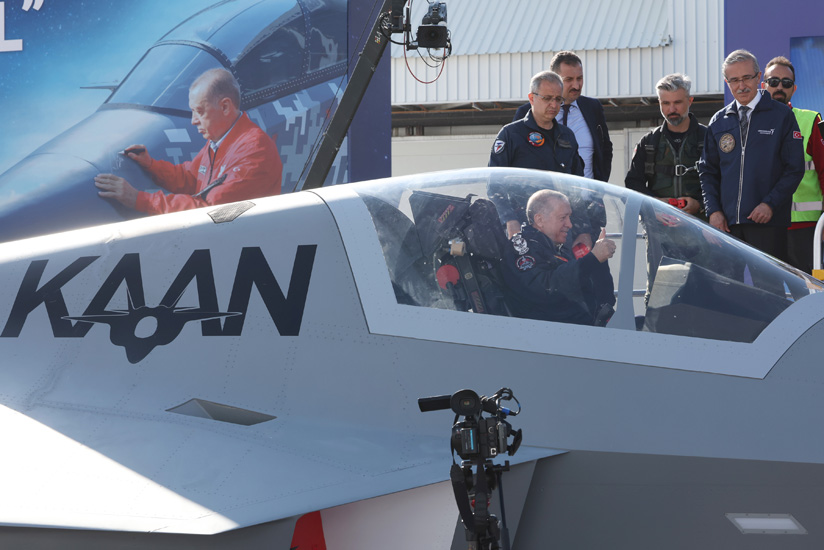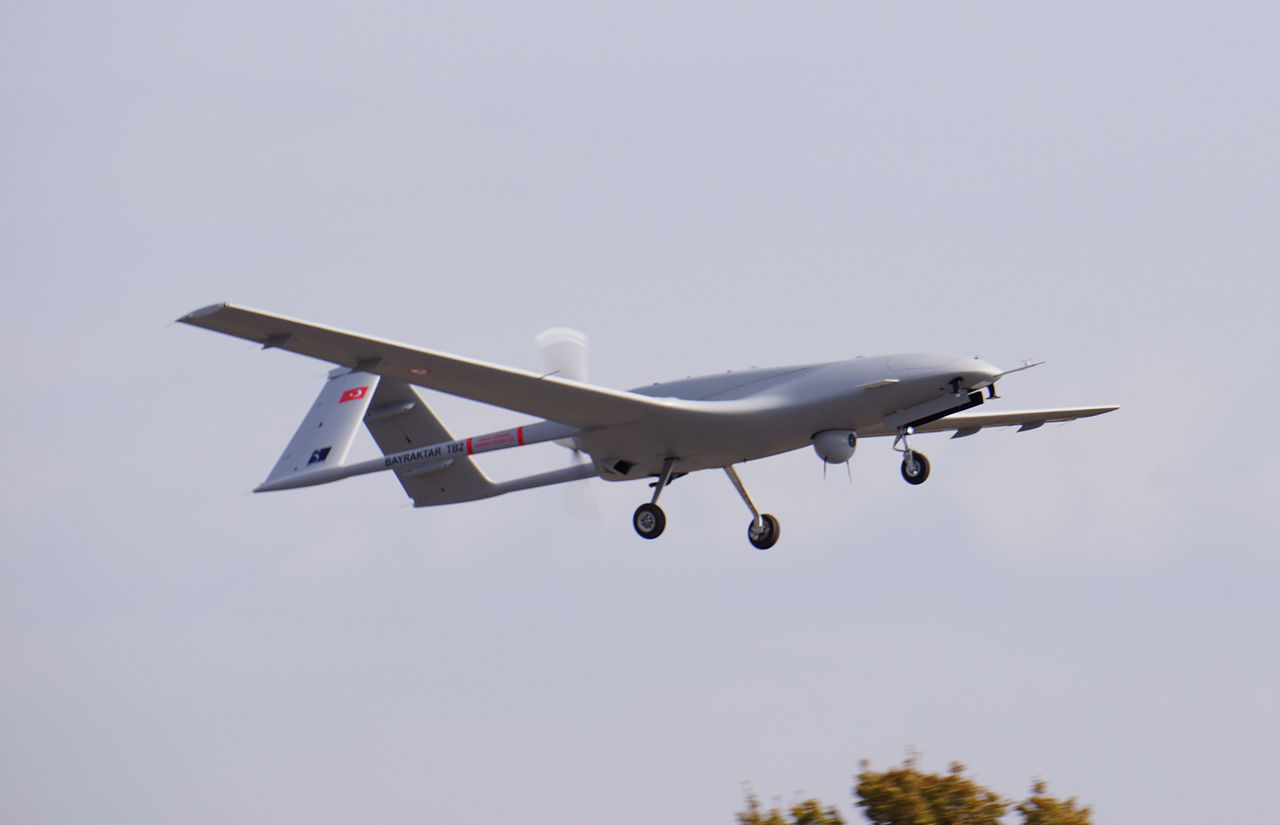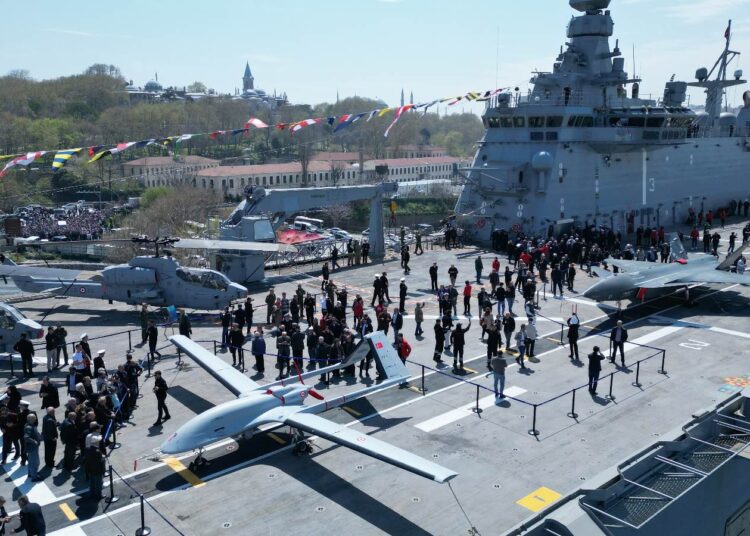Levent Kenez/Stockholm
The Turkish Ministry of Education introduced a new draft curriculum as part of the Education Model of the Century of Turkey. The draft navigates various subjects, offering students insight into Turkey’s indigenous projects in the defense industry, including military drones and warships. It also discusses controversial geopolitical issues such as an aggressive naval doctrine known as Blue Homeland (Mavi Vatan) and explains why Turkey hasn’t signed the UN Convention on the Law of the Sea (UNCLOS).
According to the ministry the Education Model of the Century of Turkey will introduce a new curriculum for students in first grade through 12th in subjects such as Turkish language and literature, physics, chemistry, biology, mathematics, philosophy, geography, history, natural sciences, social studies, human rights, citizenship and democracy. Additionally, the curriculum will include content related to the government’s development projects. The “Century of Turkey” initially appeared as a campaign promise made by President Recep Tayyip Erdogan in 2023 but has since evolved into a motto embraced by state institutions.

The new curriculum, as outlined by the Ministry of Education, places an increased emphasis on fostering “national consciousness” and “patriotism” among students. In the subject area titled “Economics in Our Lives,” students will delve into the rationale and consequences of national development initiatives. They’ll explore industrial advancements from the early Republican era along with recent national endeavors like the Turkey Space Agency (TUA), the domestic COVID-19 vaccine TURKOVAC, the inaugural indigenous car TOGG and several defense industry projects.
Furthermore, students will be exposed to “the geopolitical significance of safeguarding the country’s rights and interests in its maritime zones, including the Aegean Sea, the Black Sea, the Mediterranean Sea, and the Sea of Marmara, through the concept of Blue Homeland.
According to the ministry, the new curriculum will emphasize “Turkey’s rightful struggle against claims that disregard its legal and geographical rights in the seas, highlighting the concept of patriotism.”
Lastly, the societal and economic impacts of national development initiatives will be evaluated to spur further progress, with examples such as TEKNOFEST serving as illustrations of this process.
TEKNOFEST, initiated by Selçuk Bayraktar, President Erdogan’s son-in-law, and his brother Haluk Bayraktar, the manufacturers of Bayraktar military drones, is an aviation festival aimed at students. Financed by state institutions, TEKNOFEST is often referred to by Erdogan as the perfect example for Turkish youngsters, symbolizing innovation and progress. Selçuk and Haluk Bayraktar recently made headlines by appearing on Forbes’ latest billionaire list.
Moreover, middle school students may be assigned a research task on the radar developed by state-owned defense contractor Aselsan. Students will also learn about the mission of Turkey’s first astronaut, Alper Gezeravcı. Gezeravcı, a former military pilot, went to the International Space Station aboard a spacecraft provided by Elon Musk’s SpaceX, a project often promoted by the Erdogan government. The opposition criticized the allocation of $55 million to SpaceX for this project, arguing that this money could have been more efficiently utilized in the infrastructure of space research.

Additionally, students will be presented with examples from written and visual sources on various topics such as the Turkish Independence War against the Greeks, terrorism, coups and disasters. Using a question-and-answer technique, students will make predictions about the attitudes and behaviors of Turkish society towards these events. The curriculum will cover topics including “Turkish society’s stance on national issues,” the country’s cultural cooperation with the Turkic world, Turkey’s role in resolving regional and global issues and the reasons for and consequences of its national development initiatives. Among these topics is a controversial coup attempt in Turkey on July 15, 2016, which many believe was a false flag operation that President Erdogan used to purge his opponents within the military, leading to the establishment of his own regime.
In the new curriculum emphasis will be placed on the contributions of the early Turkic peoples to civilization, the changes in Turkish social and cultural life following the acceptance of Islam, the process of Turkification and Islamization of Anatolia, the policies that led the Ottoman Empire to become a global power, the innovations implemented by the Ottomans in response to shifting global dynamics and the Ottoman culture and civilization. Students will gain insight into Turkic culture in the Balkans, Middle East and the Caucasus. Utilizing written and visual sources from organizations such as the Turkish Cooperation and Coordination Agency (TIKA), the Yunus Emre Institute and the Presidency for Turks Abroad and Related Communities (YTB), cultural collaboration between the country and Turkish states and communities will be explored.
In the new curriculum, attention is also drawn to the initiatives led by first lady Emine Erdogan. One such initiative is the “Zero Waste Project,” which will be introduced to students. The lesson will focus on waste management practices , emphasizing the importance of reducing consumption as a first step. Concepts such as recycling and reuse will be explained to students, providing them with a comprehensive understanding of waste management principles.
Education Minister Yusuf Tekin, who provided information about the new curriculum during a television program on Monday, announced that the introduction of the new curriculum includes 21 mandatory courses. He further said a total of 14,595 opinions have been received through the ministry’s website so far. Tekin emphasized that the new project aims to simplify and reduce the academic workload for students. He added that after examining the curricula of other countries, the ministry concluded that certain information should be included in university undergraduate or graduate programs rather than in high schools.












